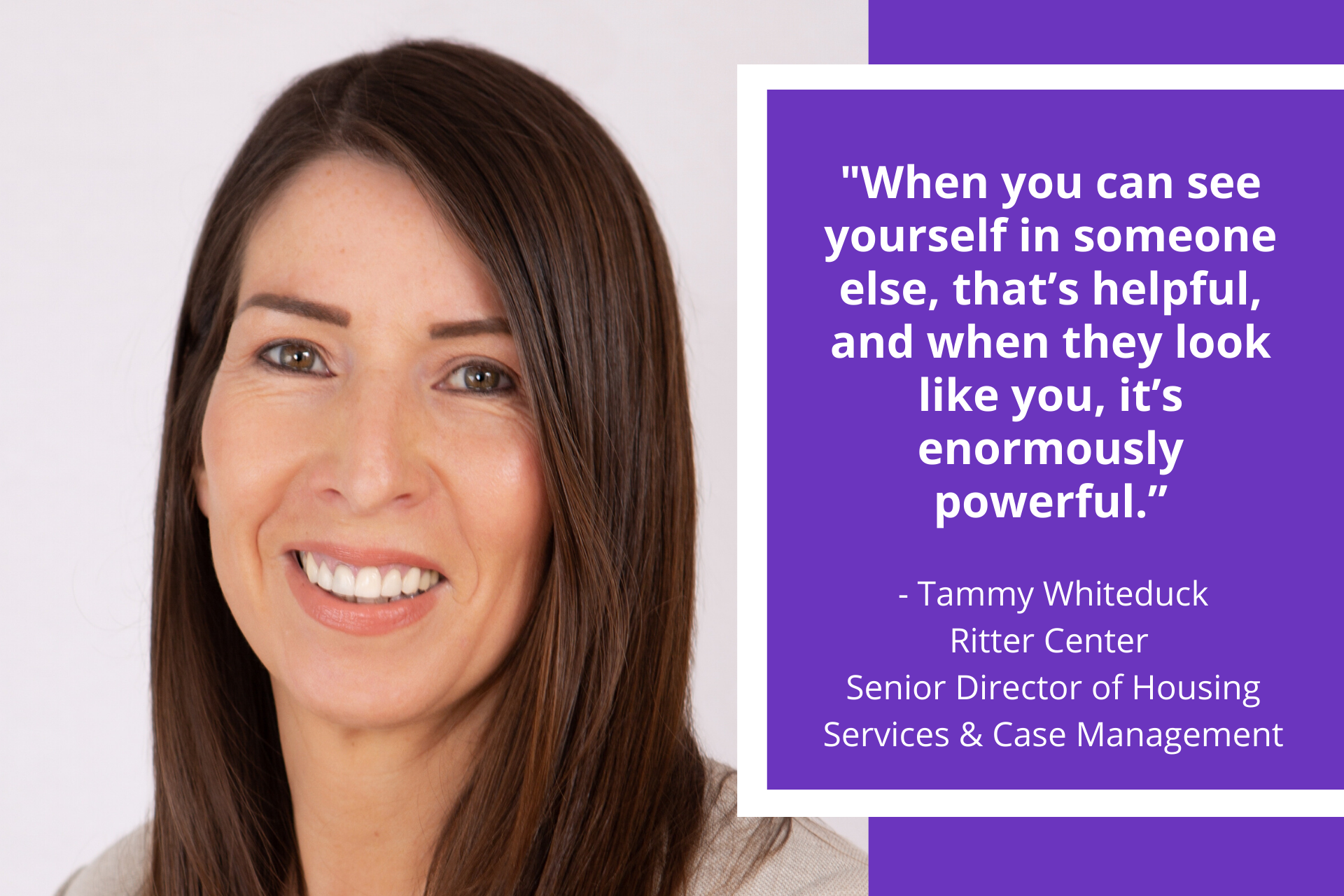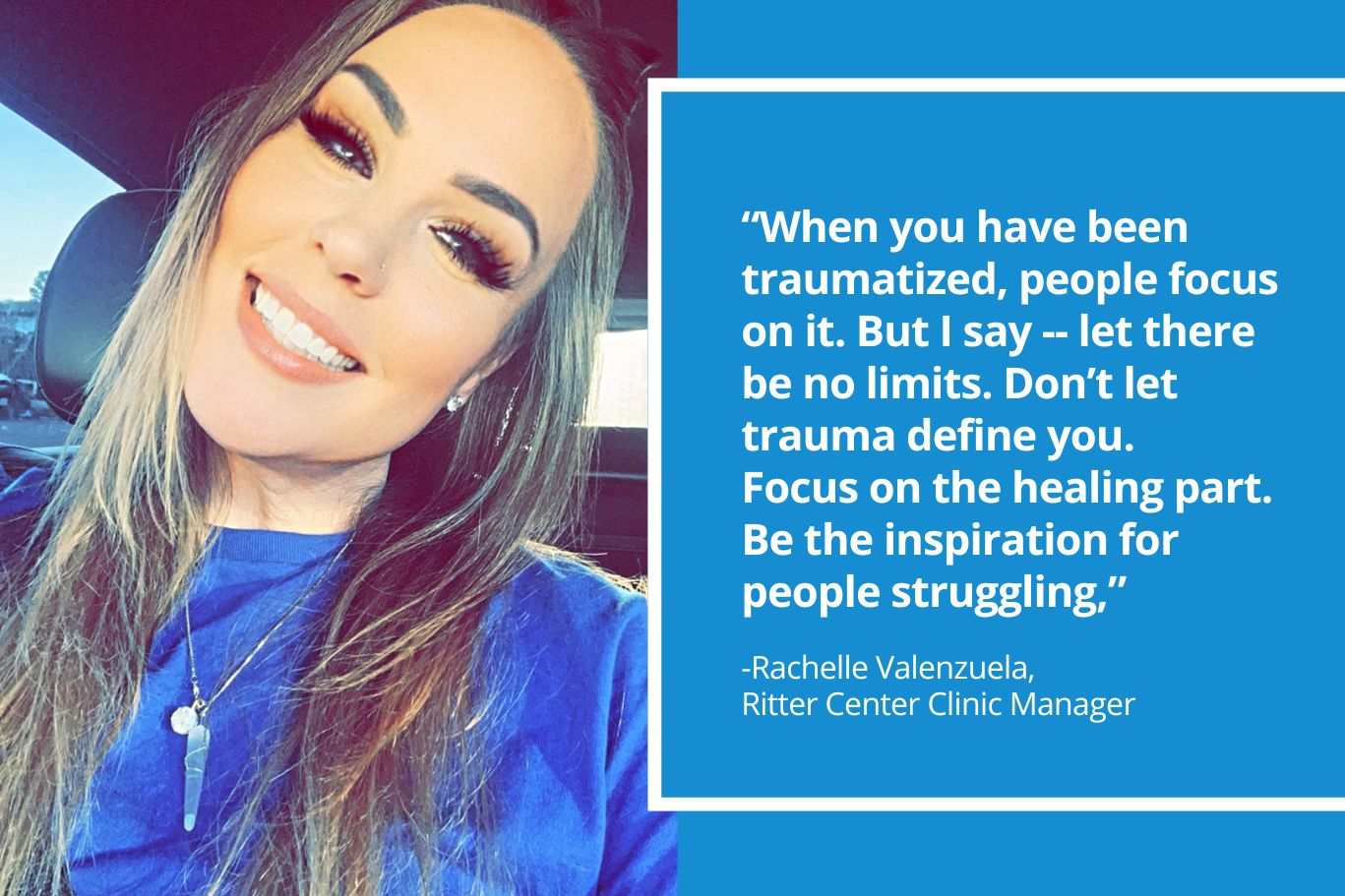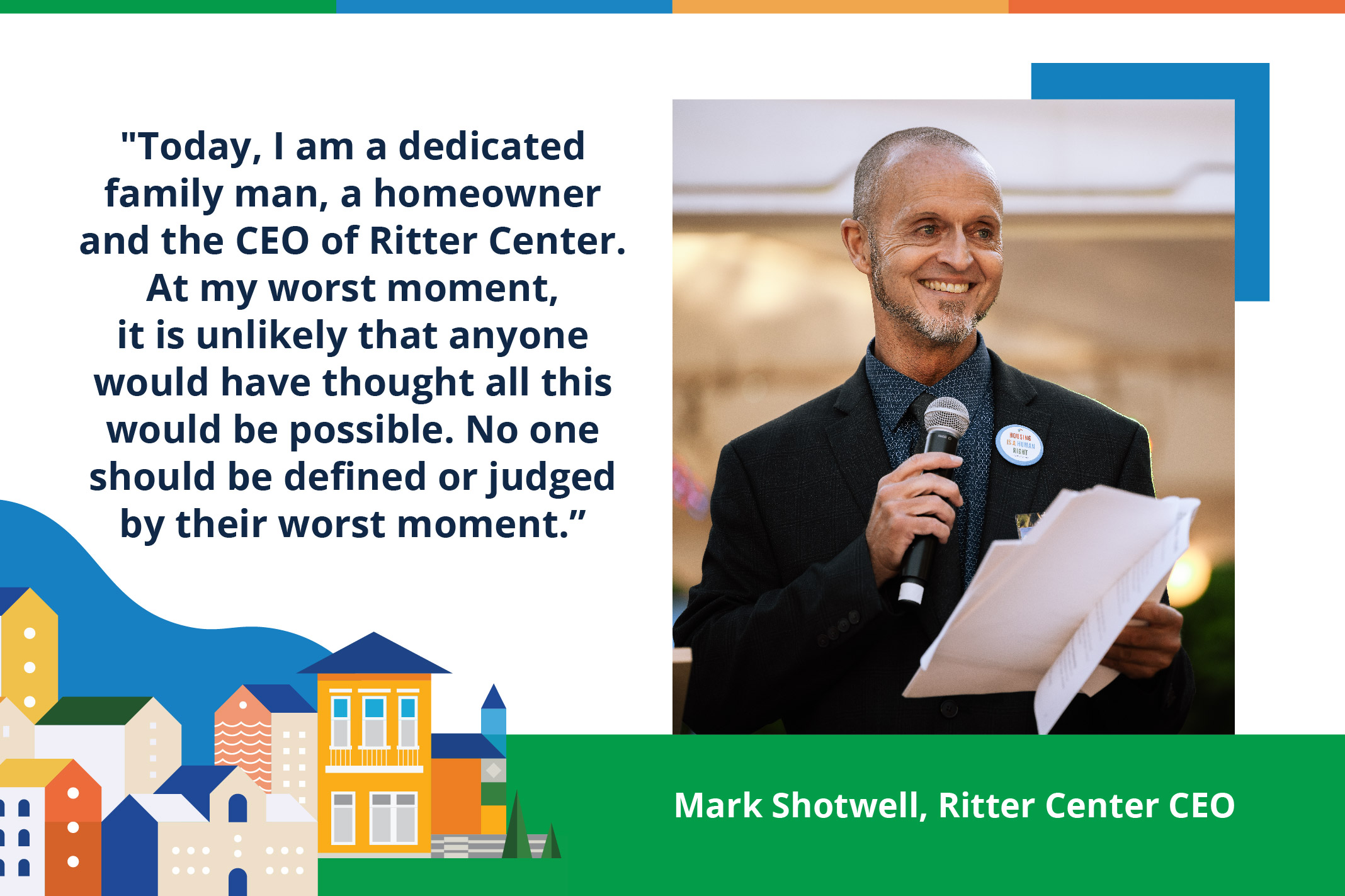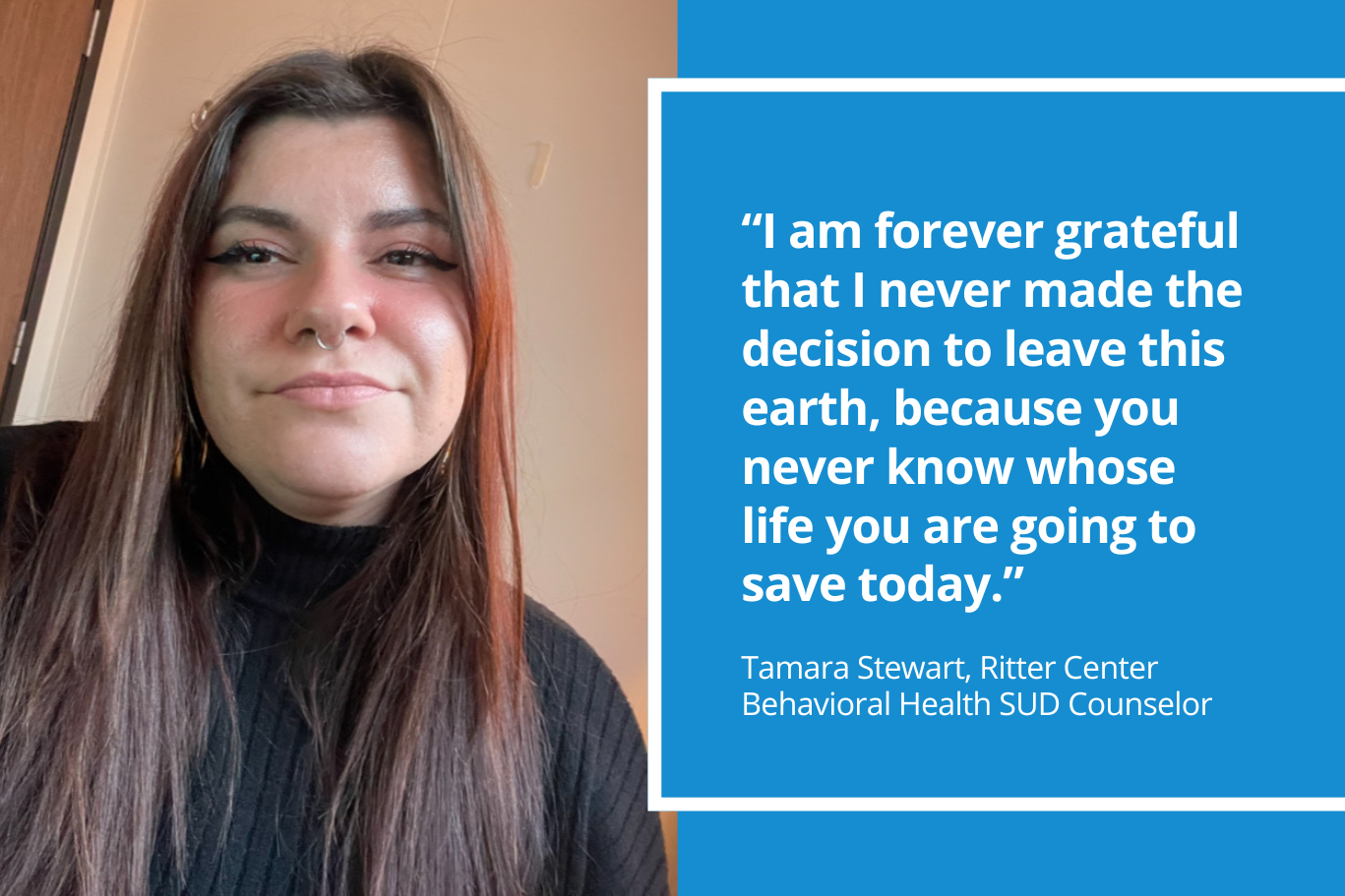
“I want my daughter to see women in positions of leadership, too.” Tammy Whiteduck, Senior Director of Housing Services and Case Management
March is Women’s History Month, and Ritter Center is joining many organizations including the Library of Congress, National Archives and Records Administration, National Endowment for the Humanities, National Gallery of Art, National Park Service, Smithsonian Institution and United States Holocaust Memorial Museum in commemorating and encouraging the study, observance, and celebration of the vital role of women in American history.
Women’s History Month had its origins as a national celebration in 1981 when Congress passed Pub. L. 97-28 which authorized and requested the President to proclaim the week beginning March 7, 1982 as “Women’s History Week.”
Since 1995, presidents have issued a series of annual proclamations designating the month of March as “Women’s History Month.” These proclamations celebrate the contributions women have made to the United States and recognize the specific achievements women have made over the course of American history in a variety of fields.
This month Ritter Center is celebrating Women’s History Month and International Women’s Day (March 8) by taking some time to talk with our staff and reflect on the roles women play in the local community as well as society at large. Recently, we talked with Tammy Whiteduck, Ritter Center’s Senior Director of Housing Services and Case Management, to hear her insights and perspectives.
“Women’s History Month takes on many meanings and appears in a variety of forms in my experience. One example is that people in my life have expressed gratitude that I am a woman in a leadership position within Ritter Center. I don’t think I fully understood before how my taking on a leadership role as a woman can directly affect other people. When staff members express this to me, I am renewed and inspired to continue my own journey. I also hope to see more women in leadership positions, and not just at Ritter Center, but in every organization whether governmental, nonprofit or private sector.
Equally important, I want my daughter to see women in positions of leadership, too.
It is important for the next generation to see what’s possible, all while staying in touch with whatever culture you come from, and carrying that forward into the future,” said Tammy Whiteduck.
“It’s hard to be what you can’t see” is a well-known and beloved quote by Marian Wright Edelman.
“My mom stayed home when I was young. That was also the norm in Canada at that time in the community where I lived. Now, I finally see the changes there, too, and women and minorities are able to achieve higher level positions. When you can see yourself in someone else, that’s helpful, and when they look like you, it’s enormously powerful,” shared Tammy Whiteduck.
“Early in my career, there were no other Native American female nurses — besides myself — in British Columbia. There is nothing quite like the power of seeing someone from your background achieve certain things that you also want to achieve. It gives you a sense of possibility that anything is possible. It is palpable.”
“I find it continues to make a difference for me as a female even today. My female friends and colleagues have shared that many of these challenges continue in 2022. For example, many women will say that something said in a meeting can sometimes be heard differently when it is said by a white male, rather than a woman, or a woman of color, or a man of color. It happens even when those words making up that concept have already been said before — and in that same meeting,” recalled Tammy Whiteduck. “That continues to be a big part of why months like Women’s History Month are still so important to celebrate. We must continue the very important work of raising awareness in the community.”
“I continue to strive to achieve new goals where I am supervising, and managing, larger teams. It is the diversity of staff and on our board at Ritter Center that have enormous potential to grow and change to reflect the population at large.”
“I was recently honored and touched to be asked to be a part of my church committee. They asked me to lend my voice to add to the dialogue, and to expand the conversation, as the contributions that I can make to diversity as both a woman and a Native American are welcomed and appreciated,” said Tammy Whiteduck. “I am grateful that my insights and perspectives are valued in that way.”
“One particularly interesting aspect of this time in history is that the treatment I receive can vary depending on whether I’m perceived as a Native American or white,” noted Tammy Whiteduck. “You see, people can’t always recognize by looking at me that I am Native American and what lives within me as to who I am and my identity. That has struck me as a particularly powerful statement of how far we still have to go in society.”
“Being a part of that change is extremely important to me, both in terms of Women’s History Month and in terms of diversity, equity and inclusion in general.”




